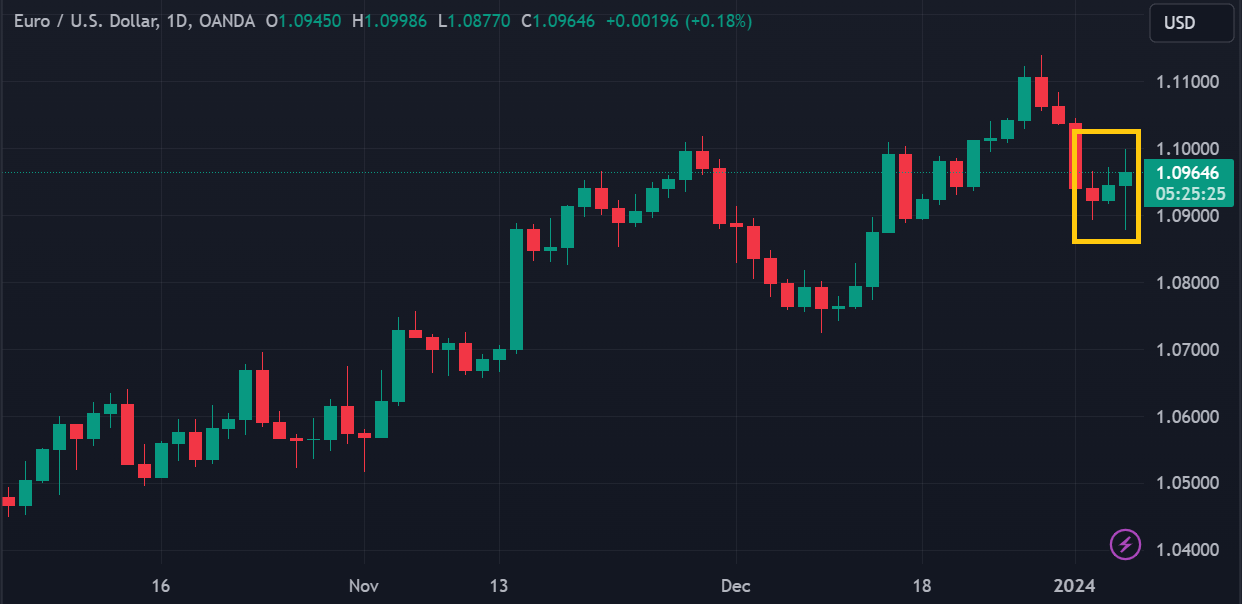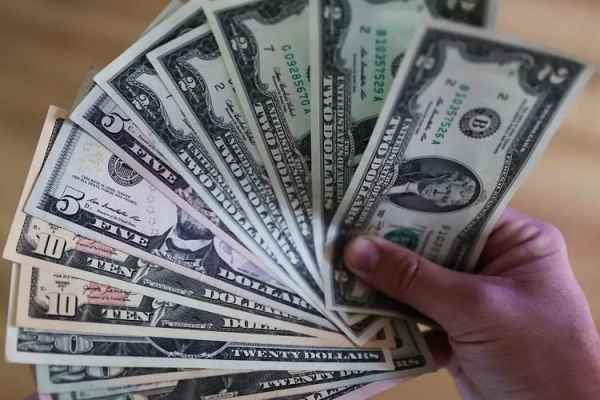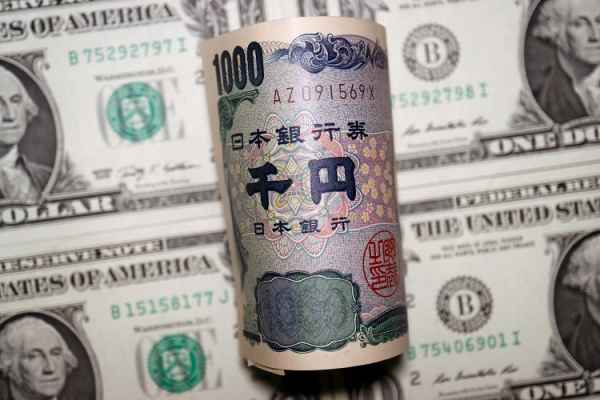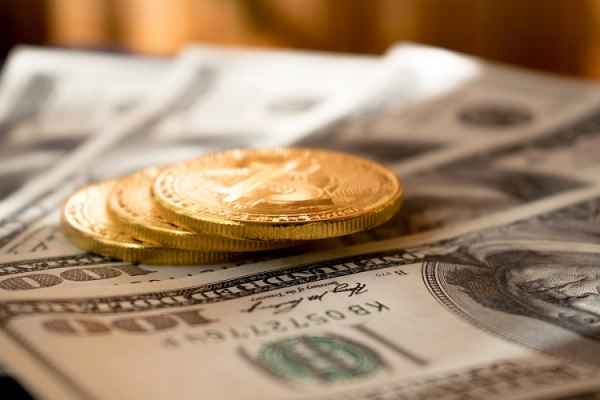Eurozone inflation slowed faster than the consensus forecast, making it difficult for the euro rate to strengthen. In fact, the US dollar is weakening against other major currencies.
The euro displayed a mixed performance following the release of an assortment of economic data from the Eurozone and the United States on Friday (January 5). EUR/USD continued to inhabit a range below 1.1000, EUR/GBP slipped to a two-week low, while EUR/JPY's rally was held at 158.20s.

Various major currencies strengthened against the US dollar following the release of US NFP and PMI data this evening. However, EUR/USD posted the smallest percentage gain. The Single Currency was weighed down by Eurozone CPI inflation data released in the previous session.
Eurostat's preliminary report showed that Eurozone CPI slowed faster than the consensus forecast. Annual inflation increased from 2.4% to just 2.9% by December 2023, whereas the previous consensus anticipated an increase to 3.0%. Meanwhile, core inflation data declined from 3.6% to 3.4%, weaker than the consensus forecast of 3.5%.
Eurozone PPI inflation data posted a much sharper decline. PPI on an annual basis was recorded at -8.8%, whereas the consensus had previously estimated -8.7%.
The series of Eurozone inflation data at the end of 2023 worsened the outlook for the euro versus various other currencies, particularly the pound sterling. Contrary to the latest disappointing Eurozone data, various UK economic reports throughout the week have exceeded expectations.
Jane Foley, head of FX strategy at Rabobank, thinks it is still difficult to draw an optimistic outlook for sterling. Nevertheless, she thinks the euro will remain under pressure against sterling in the next 12 months. The reason for this is not only related to the comparative outlook for inflation and interest rates in the two currencies, but also the wide variety of economic challenges facing the two regions.
"We expect that Germany's economic issues will weigh on the euro sentiment going forward and allow GBP to take back some ground," said Foley.

 Dedicated FREE FOREX VPS
Dedicated FREE FOREX VPS Free FOREX Virtual Private Server
Free FOREX Virtual Private Server MT4 Demo Contest, Get $500
MT4 Demo Contest, Get $500 Sign Up for an Account, Claim 60% Deposit Bonus
Sign Up for an Account, Claim 60% Deposit Bonus Free MT4/MT5 VPS 2024
Free MT4/MT5 VPS 2024 Send E-mail and Get Free Merchandise
Send E-mail and Get Free Merchandise $1K Refer a Friend Bonus for Pepperstone Pro clients
$1K Refer a Friend Bonus for Pepperstone Pro clients Maximize Your Earnings with 100% Deposit bonus
Maximize Your Earnings with 100% Deposit bonus Trade to Win, $5,000 Monthly Demo Contest
Trade to Win, $5,000 Monthly Demo Contest Claim 30% + 15% Deposit Bonus from LiteFinance
Claim 30% + 15% Deposit Bonus from LiteFinance






